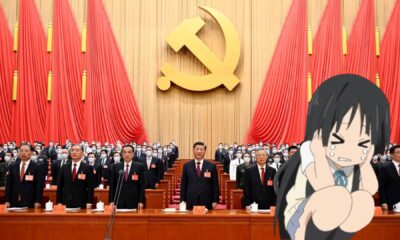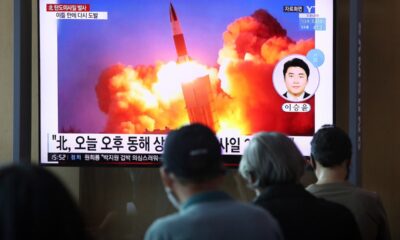Breaking News
North Koreans on Chinese Tuna Boats Boost Revenue for Kim Jong-un

A group of North Korean fishermen spent up to a decade at sea, facing harsh conditions on Chinese tuna longliners in the Indian Ocean. Their salaries were sent directly to their government, and their catch likely made its way to dining tables in Europe and Asia. This arrangement provided a new source of revenue for North Korea’s leader, Kim Jong-un, despite the United Nations’ ban on member states hiring North Korean workers due to their role in funding the country’s nuclear weapons program.
These fishermen were part of a larger group of North Koreans sent abroad to work in various industries, from factories and restaurants in China to construction sites in Russia and shipyards in Eastern Europe. They were even deployed to fight in conflicts, such as Russia’s war against Ukraine.
The plight of North Korean fishermen went unnoticed for years as they were isolated at sea without contact with the outside world. The Environmental Justice Foundation’s report highlighted the extreme working conditions faced by these fishermen, describing it as forced labor exceeding the already prevalent abuses in the fishing industry.
The foundation also raised concerns about the products from these ships entering global markets, including Europe, the UK, and Asia. They identified Chinese-flagged tuna longliners using North Korean labor, with some authorized to export fish to European and UK markets. Carrier ships picking up fish from these vessels were found visiting markets in Asia.
The foundation’s CEO emphasized the coercion faced by these laborers, highlighting the ethical implications of consuming products derived from such exploitative practices.
Evidence gathered by the foundation included interviews with shipmates who worked alongside North Koreans and video clips confirming their presence on board Chinese vessels.
Transferred at sea
Communication with North Korean crew members was limited to body language and basic language skills picked up while working together. The North Korean crews were often transferred between vessels at sea to avoid detection by port authorities.
Foreign port authorities discovering North Korean workers on Chinese vessels could lead to legal repercussions for the captains. The challenging conditions faced by these fishermen included long hours, limited sleep, and restricted communication with their families.
The pandemic further exacerbated the situation, with some North Koreans stranded at sea due to border closures. Despite the hardships, these fishermen continued to work, with little contact with their families back home.
North Korea’s practice of sending workers abroad has been a lucrative source of revenue for the country, despite international sanctions. The continued presence of North Korean workers in various countries indicates the challenges in enforcing these restrictions.
Workers abroad are required to maintain strict loyalty to the North Korean regime, including spying on each other and promoting propaganda. The emotional toll on these workers is evident from their longing for home and limited communication with their families.
The stories of North Korean fishermen highlight the complex web of exploitation and coercion in the global fishing industry. Their experiences shed light on the broader issue of forced labor and human rights abuses in various sectors.
It is crucial for consumers and governments to be aware of the origins of the products they consume and take action against practices that perpetuate such exploitation.
The foundation’s report serves as a wake-up call to address the systemic issues that allow such abuses to persist and calls for greater accountability and transparency in the global supply chain.
-

 Destination7 months ago
Destination7 months agoSingapore Airlines CEO set to join board of Air India, BA News, BA
-

 Breaking News8 months ago
Breaking News8 months agoCroatia to reintroduce compulsory military draft as regional tensions soar
-

 Tech News11 months ago
Tech News11 months agoBangladeshi police agents accused of selling citizens’ personal information on Telegram
-

 Breaking News8 months ago
Breaking News8 months agoBangladesh crisis: Refaat Ahmed sworn in as Bangladesh’s new chief justice
-

 Guides & Tips9 months ago
Guides & Tips9 months agoHave Unlimited Korean Food at MANY Unlimited Topokki!
-

 Gaming8 months ago
Gaming8 months agoThe Criterion Collection announces November 2024 releases, Seven Samurai 4K and more
-

 Toys10 months ago
Toys10 months ago15 of the Best Trike & Tricycles Mums Recommend
-

 Tech News9 months ago
Tech News9 months agoSoccer team’s drone at center of Paris Olympics spying scandal
























